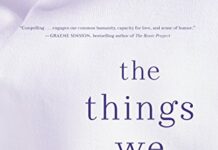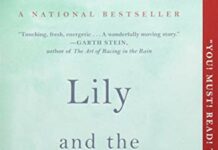
Ebook Info
- Published: 2017
- Number of pages: 272 pages
- Format: Epub
- File Size: 0.53 MB
- Authors: Álvaro Enrigue
Description
A daring, kaleidoscopic novel about the clash of empires and ideas, told through a tennis match in the sixteenth century between the radical Italian artist Caravaggio and the Spanish poet Francisco de Quevedo, played with a ball made from the hair of the beheaded Anne Boleyn.
The poet and the artist battle it out in Rome before a crowd that includes Galileo, a Mary Magdalene, and a generation of popes who would throw the world into flames. In England, Thomas Cromwell and Henry VIII execute Anne Boleyn, and her crafty executioner transforms her legendary locks into those most-sought-after tennis balls. Across the ocean in Mexico, the last Aztec emperors play their own games, as the conquistador Hernán Cortés and his Mayan translator and lover, La Malinche, scheme and conquer, fight and f**k, not knowing that their domestic comedy will change the course of history. In a remote Mexican colony a bishop reads Thomas More’s Utopia and thinks that it’s a manual instead of a parody. And in today’s New York City, a man searches for answers to impossible questions, for a book that is both an archive and an oracle.
Álvaro Enrigue’s mind-bending story features assassinations and executions, hallucinogenic mushrooms, bawdy criminals, carnal liaisons and papal schemes, artistic and religious revolutions, love and war. A blazingly original voice and a postmodern visionary, Enrigue tells the grand adventure of the dawn of the modern era, breaking down traditions and upending expectations, in this bold, powerful gut-punch of a novel.
Game, set, match.
“Sudden Death is the best kind of puzzle, its elements so esoteric and wildly funny that readers will race through the book, wondering how Álvaro Enrigue will be able to pull a novel out of such an astonishing ball of string. But Enrigue absolutely does; and with brilliance and clarity and emotional warmth all the more powerful for its surreptitiousness.”
—Lauren Groff, New York Times-bestselling author of Fates and Furies
“Engrossing… rich with Latin and European history.” —The New Yorker
“[A] bawdy, often profane, sprawling, ambitious book that is as engaging as it is challenging.” —Vogue
User’s Reviews
Review “Brainspinning.” —Marlon James, Booker Prize-winning author of A Brief History of Seven Killings”[A] novel without boundaries.” —O, the Oprah Magazine”Brilliantly original. The best new novel I’ve read this year.” —Salman Rushdie”[A] bawdy, often profane, sprawling, ambitious book that is as engaging as it is challenging.” —Vogue“Sudden Death is the best kind of puzzle, its elements so esoteric and wildly funny that readers will race through the book, wondering how Álvaro Enrigue will be able to pull a novel out of such an astonishing ball of string. But Enrigue absolutely does; and with brilliance and clarity and emotional warmth all the more powerful for its surreptitiousness.” —Lauren Groff, New York Times-bestselling author of Fates and Furies”Mind-bending.” —Wall Street Journal”Engrossing… rich with history.” —The New Yorker”Writing with his customary intensity about his favorite sport, David Foster Wallace described tennis as ‘chess on the run, beautiful and infinitely dense.’ In his droll and erudite new novel, Sudden Death, Álvaro Enrigue provides his own distinct take on that chess-on-the-run notion and elevates it to an even more exalted level… [G]lorious… [H]is approach has both great entertainment value and intellectual appeal… Splendid.” —Larry Rohter, New York Times”Here is a novel that does full justice to the phrase ‘cutting edge’: In the manner of its protagonist, Caravaggio, Sudden Death is at once formally audacious and piercingly humane.” – Garth Risk Hallberg, New York Times bestselling author of City on Fire”What makes the novel so enthralling is the intimate humanity of its characters. Enrigue demystifies them using a rich, baroque naturalism, cut by flippancy and goofy jokes (all hail to translator Natasha Wimmer for relaxed perfection in every key)… Sudden Death resembles the arts it celebrates: selective, dramatized, all dark gaps and sensual glare, bending naturalism to some post-God purpose, like Caravaggio. Building a luxuriant picture that only ignites into meaning when angled a certain way, like the feather artists. Throughout this mercurial novel, playing fast and loose with facts lets richer truths about the world emerge.” —The Washington Post”[A] novel of revolution in the spatial and historical sense of the word…. And structurally, Sudden Death isn’t normative: a short screenplay and the author’s emails are interspersed with short entries from obscure sporting dictionaries and excerpts from humanist classics. Chapters are short, enticing and written with a casual erudition that whispers to readers that, no matter the apparent surprises of the game, the author is in full control. Enrigue muses on the nature of the novel and his intentions in writing Sudden Death as easily as he holds a candle to the obscure maneuvers of the powerful. And he has a poet’s ear, beautifully attended to by Natasha Wimmer’s translation…. Sudden Death shows us that games are never merely games, because no game is played without consequences.” —Los Angeles Times“By turns intellectual and earthy, Enrigue’s fictionalized account of Renaissance Europe and 16th century Mexico is the best kind of history lesson: erudite without being stuffy, an entertaining work that incorporates the Counter-Reformation, the Spanish conquest of the Aztec empire, art history and even a grammar lesson on Spanish diminutives into one mesmerizing narrative.” —San Francisco Chronicle”At once erudite and phantasmagoric.” —The Millions”[A]n exhilarating, funny, and surprisingly sexy read. Enrigue turns historical figures into real, flesh-and-blood people.” —Buzzfeed”Inventive… The book bounces back and forth between the old world and the new, the past and the present, conquistadors and Mayans, and much more as it reimagines history as a sometimes brutal and sometimes hilarious tennis match.” —Thrillist“This novel by one of Mexico’s most innovative authors is a triumph of narrative skill, humour and lightly worn erudition.” —The Financial Times“Like the tennis court, fiction can be both a constrained and a constraining space… Enrigue teasingly suggests that the only debt a novel has is to its own internal coherence… In less able hands, this could all feel a bit labored, but in Sudden Death the postmodernist flourishes are never gimmicks. They are suited to their subject, reflecting and revealing the games and tricks of empires and of the histories they construct to justify themselves.” —Bookforum“Sudden Death is very, very funny and it is unfailingly brilliant and I have no idea how to describe it–another one of its rare virtues. I might say it is about tennis, or history, or art, or absurdity, but more accurate would be to say, simply, that it’s essential reading.”—Rivka Galchen”A story of history plunging forward and the world at a defining moment. Rackets are raised; the court looms large. Finally a tale that truly defies the bounds of the novel.” —Enrique Vila-Matas“Sudden Death is a unique object – tropical and transatlantic; hypermodern and antiquarian—a specialized literary instrument designed to resist the deadly certainties of universal history. But don’t let that confuse you. Sure, his method may be all playfulness and multiplicity, but Álvaro Enrigue is the most disabused novelist I know.” —Adam Thirlwell, author of Lurid & Cute“A full-fledged writer.” —Mario Vargas Llosa“[Enrigue] belongs to many literary traditions at once and shows a great mastery of them all. . . . His novel belongs to Max Planck’s quantum universe rather than the relativistic universe of Albert Einstein: a world of coexisting fields in constant interaction and whose particles are created or destroyed in the same act.” —Carlos Fuentes”In this wildly surreal novel — translated by Natasha Wimmer, who also translated Roberto Bolaño — the Mexican-born author imagines a 16th century tennis match between the Italian painter Caravaggio and the Spanish poet Francisco de Quevedo played with a ball made from the hair of the beheaded Anne Boleyn. And then things really get strange.” —Newsday“A rare example of an artful, comedic, deeply literary novel with the potential to become a fixture on bookshelves everywhere.” —Flavorwire “Beautifully rendered… Sudden Death is one of the most engaging, audacious, and flat-out fun works of fiction I’ve read in a while.” —Vice.com “Exuberantly intellectual… Enrigue transmutes the familiar, and shifts our awareness. Sudden Death is an original, transformative work.” —BBC.com “The latest novel from Álvaro Enrigue defies any kind of easy description… If you like your fiction both gripping and impossible to categorize, this may be your new obsession.” —Vol. 1 Brooklyn “This rich novel will make the world come alive for you in completely new ways.” —Bustle “Álvaro Enrigue’s Sudden Death reads more like an intoxicating adventure than a novel — set around the world in the 16th century, Sudden Death presents familiar players (Galileo, Caravaggio, Anne Boleyn, Cortés, and more) like we’ve never seen them before. Spectacularly original, Enrigue’s daring novel challenges everything readers think they know about European colonialism, history, art, and modernity.” —Buzzfeed, Most Exciting Books Coming in 2016 “Joyfully disorienting… Enrigue’s ambitious tale bends in on itself and will reward readers who won’t mind feeling like wanderers lost in the increasingly erudite corridors of Borges’ library of Babel.” —Booklist “Sudden Death reads like a playful novel written by a master with a wicked serve… Not only does the reader get to brawl, drink, and love with Caravaggio, but Enrigue slides effortlessly between the tennis match and discourses that turn into philosophical art history… The effect of these quick chapters is dazzling without being inaccessible.” —Kirkus“Enrigue may be the best Mexican writer at work today. This novel is genius.” —Scott Esposito“[Enrigue] keeps his reader spell-bound in these three-hundred pages, all while delivering a hair-raising lesson in history and literature.” —Le Monde “The speculative weight of this novel is brilliant, intriguing. No less brilliant is its unreliable narration.” —El País
Reviews from Amazon users, collected at the time the book is getting published on UniedVRG. It can be related to shiping or paper quality instead of the book content:
⭐ Opening this book — I won’t yet call it a novel — is like walking into one of those treasure rooms in a museum, recreating the “Cabinet of Wonders” beloved of old collectors: a bit of art, a bit of history, a profusion of extraordinary objects from around the globe, put together because they are rare or wonderful or tell a story. But not just anyone’s story, told in anyone else’s way. One of the characters in it, for example, is the painter Caravaggio, arguably the leading Italian artist at the start of the 17th century. There is a lot of material in his life alone: humble birth, distinguished patronage, bisexual inclinations, preference for using jailbirds and whores as models in his religious paintings, unsavory reputation as a street fighter, and convicted murderer after running through an opponent on the tennis court. Plenty for a traditional novelist in, say, the manner of Irving Stone to turn into a saga of some five hundred pages.But what does the Mexican author Álvaro Enrigue do, in half that length? He focuses on a fictional tennis match, pitting the painter against the Spanish poet Francisco de Quevedo. The changing fortunes of the game — think blood sports rather than Wimbledon — thread through the entire book, but only as a spine to which numerous other ideas may be attached. The ball, for instance, is a very valuable object, stuffed with the hair of Anne Boleyn, cut off before her death and given as fee to her French executioner. The story of how it got into Caravaggio’s hands will involve two Popes, a Genoese banker, and a Milanese saint — and along the way the history of the Council of Trent and the Counter-Reformation that ended the Renaissance, launched the Baroque, and gave the Inquisition its licence to torture and kill. Quevedo’s second, the Duke of Osuna, will marry the granddaughter of Hernando Córtes; Enrigue uses this fact as springboard for numerous vignettes from the conquest of Mexico, jumping forwards and back in time, and showing that even world-changing events can hang on things as trivial as whether the Mayan princess who was the conquistador’s bedfellow and translator had obtained satisfaction the night before. The chapter titles indicate something of the flavor: “Tennis, Art, and Whoring,” “The Really Lousy Meeting of Two Worlds,” “Regarding Most Popes’ Utter Lack of a Sense of Humor,” and so on. In between, Enrigue throws in short excerpts from five centuries of literature in as many different languages, an eight-page film script, and even a bunch of eMails between him and his editor. It is a dizzying book. You can’t follow it, or arrange it in any logical sequence. All you can do is submit — in my case, with a smile on my lips and eyes wide in wonder.But a novel? Even four-fifths of the way through the book, the author himself doesn’t know: “As I write, I don’t know what this book is about. It’s not exactly about a tennis match. Nor is it a book about the slow and mysterious integration of America in what what we call ‘The Western World’ — an outrageous misapprehension, since from the American perspective, Europe is the East. Maybe it’s just a book about how to write this book; maybe that’s what all books are about. A book with a lot of back-and-forth, like a game of tennis.” In an earlier chapter, talking about variants in proper names, he adds: “These facts were confusing the their own time, and there’s no reason why they shouldn’t be confusing in a novel that doesn’t aspire to accurately represent that time, but does want to present it as a theory about the world we live in today.”No, this is fiction, not an accurate representation; although the major facts are historical, the author lets his imagination roam freely behind the scenes, in taverns and bedrooms. After all, he said, “novels demolish monuments because all novels, even the most chaste, are a tiny bit pornographic.” As a former art historian, I know many of the monuments and artworks in question, yet nothing has so drenched me in the flavor of these times as Enrigue’s novel. But when he calls it “a theory about the world,” it seems a curious choice. Natasha Wimmer’s translation is so perfect that I have to assume that “teoría” was in the original. Yet it seems too rational a word, too dependent on putting thoughts together in logical sequence. What I really think he means is VISION, and Enrigue’s vision is so radiant, so transcendent, so filled with life, that it shines through his novel from beginning to end. Allow me one longish quote to prove my point: Enrigue is talking about…”…a novel form of alchemy that didn’t seek the transmutation of metals or the elixir of youth but rather a knowledge of the essential elements of the earth — what we would now call inorganic chemistry. Anyone who believes that earthly objects are all composed of the same group of substances, and that transformations are accomplished only by mechanical means, will naturally perceive the voice of God in the filthy fingernails — nails that are of this world, a part of history — of Caravaggio’s saints and virgins. The voice of a god more brilliant than capricious; a god unlike God, remote and uninterested in revealing himself in miracles beyond combustions or the balance of forces; a true god for everyone: the poor, the wicked, the politicians, the rent boys, and the millionaires. Caravaggio was to painting what Galilei was to physics: someone who took a second look and said what he was seeing; someone who discovered that forms in space aren’t allegories of anything but themselves, and that’s enough; someone who understood that the true mystery of the forces that control how we inhabit the earth is not how lofty they are, but how elemental.”
⭐ Probably deserves a slightly better rating, but for this reader there was no choice as there is no in between for two stars (I Don’t Like It) and three stars (It’s OK).The book probably does have a point, but what this is is most likely beyond the vast majority of reader’s capability of deduction. Even the writer makes rather unusual remarks within the book about the purpose of the book.If you must persist with reading this book, then have immediate access to the internet (at all times) so that you can endlessly search on the history of Spain’s conquering of Mexico, Conquistadors & Mexicans (i.e. Aztecs, etc.), Catholic Rome & Catholic Europe and lots of various bishops of the times, and just a little bit of tennis (real old school).The only positive thing I could take from the book was a heightened appetite for investigating the works of Carravagio. The rest was a mess and overload of mish-mashed history and fiction, which does little to draw the reader in.Perhaps that is the very point of the book – to draw the reader into the history of the time. Unfortunately, it is just to much hard work for probably most readers.Sorry, but thumbs down for me.
⭐ This is an oddity of a book. You might call it a novel, or a collection of essays, or explorations, or the ruminations of a curious writer. Using a sixteenth century tennis match as a vehicle, Enrigue delves into extended morsels of Renaissance art, the Counter-Reformation in Europe, Cortes’ conquest of the Aztec empire. It’s fun and erudite and bounces around from topic to topic much like the tennis balls, the pelotas, that figure so prominently in the books featured activity. Tenez anyone?
⭐ I won’t even attempt to describe the plot of this novel. Suffice to say it within the framework of an early tennis match but it is so much more. The writing is exquisite. And it isn’t even the original Spanish. I bookmarked certain exceptional passages that were especially beautiful. Just dazzling.
⭐ This is one of those books whose nonlinear plot, from the beginning, disoriented me and got me thinking about the hidden relationships between seemingly unconnected events. It plays with one’s sense of place and time. But the wandering journey is absolutely worth the trouble.
⭐ Enrique intrigues us with his use of a tennis match between a famous Spaniard and Italian to highlight the Catholic Church’s annihilation of indigenous Mexican populations through Spanish conquistadors. The novel is comical at times but also tragic. His writing technique is difficult to follow at times, but worth sticking it out to search for his underlying meaning.
⭐ Loved this book. What a treat. I have recommended it to as many people as possible. I found myself Googling things just to see what was true and what was story. Learned so much at the same time was so impressed with the creative writing. A bit like a Deadpool movie in a way.
⭐ I was bored. Couldn’t read past chapter 1. No nuance. Beginning page was repelling.
⭐ A worthwhile read for anyone who: loves good literature, interesting history, humor, reinvention, inventiveness,art, and poetic justice.
⭐ Some very interesting plot lines tied to theories and rumors about how Caravaggio died. One theory says he was playing tennis at the time of his death. This book got rave reviews; but I thought it was good, not great.
Keywords
Free Download Sudden Death: A Novel in Epub format
Sudden Death: A Novel Epub Free Download
Download Sudden Death: A Novel 2017 Epub Free
Sudden Death: A Novel 2017 Epub Free Download
Download Sudden Death: A Novel Epub
Free Download Ebook Sudden Death: A Novel





